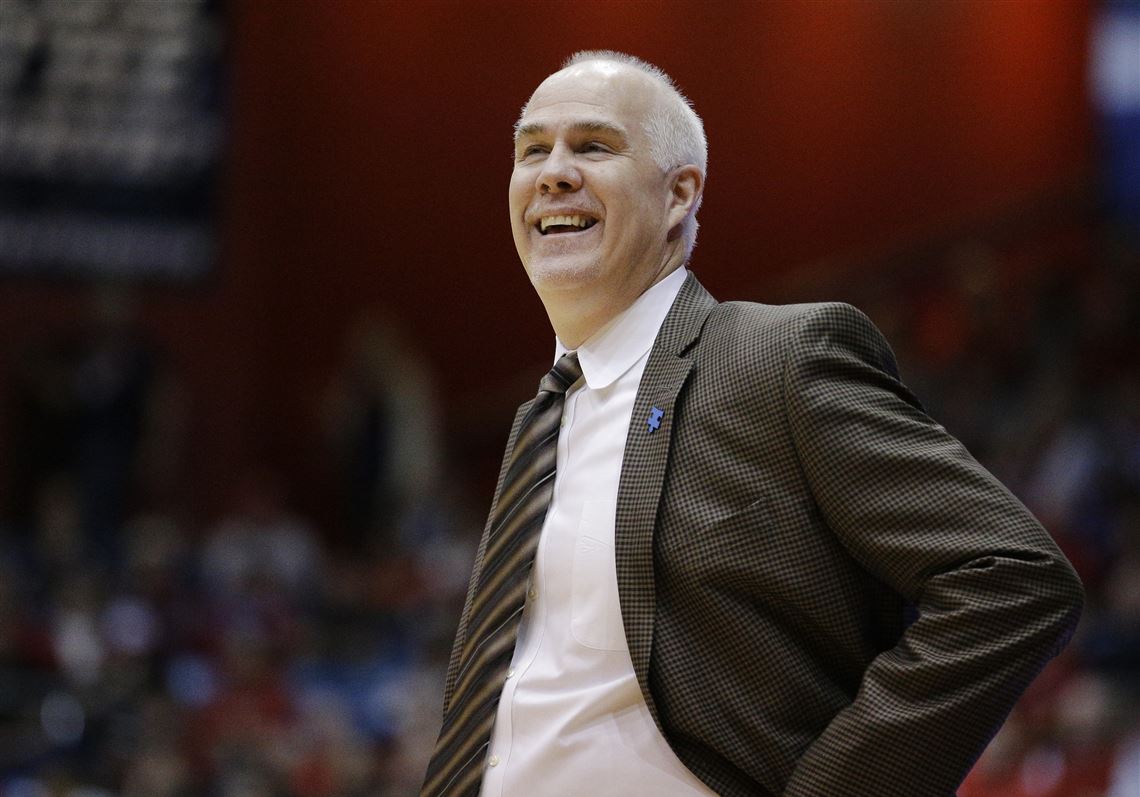While certainly not identical, the respective coaching careers of St. Bonaventure’s Mark Schmidt and Duquesne’s Jim Ferry follow a similar path.
The two men, separated by about four years in age, coached in the Northeast Conference at the same time, with Schmidt at Robert Morris and Ferry at LIU Brooklyn. After remaking programs at that level, they were rewarded with jobs at downtrodden Atlantic 10 Conference programs.
From there, the resemblance dwindles. Now in his ninth season, Schmidt has the Bonnies at 18-7 and in fourth place in the competitive A-10; Ferry’s fourth team, after a promising 15-7 start, has lost five in a row to bring his record at the school to 48-70.
As the two men and their teams prepare to match up tonight in Olean, N.Y., St. Bonaventure’s success the past three seasons could be a source of hope for Duquesne. After all, if a coach can excel with the Bonnies (18-7, 10-4), traditionally one of the conference’s tougher gigs, why can’t the same hold true for the Dukes (15-12, 5-9)?
“It not only gives us hope, but it has been our plan here,” Ferry said. “It’s coming together. There’s been a bump in the road because of an injury to one of our best players, but we’re on our way.”
The programs and schools are not duplicates because few are. St. Bonaventure’s undergraduate enrollment of 1,687 is less than a fifth of Duquesne’s, and the school’s campus is in rural southwestern New York, not the middle of a major city. From a financial standpoint, the Bonnies spent nearly $1 million less on basketball in 2014-15 than the Dukes ($2.6 million to $3.5 million).
The two programs, though, are similar enough, each with a strong and decorated tradition that became obscured during an underwhelming multi-decade stretch. Duquesne hasn’t made an NCAA tournament since 1977; before Schmidt’s arrival in 2007, St. Bonaventure had made it just once since 1978.
A former Xavier assistant, Schmidt remembered St. Bonaventure for its loud, sometimes chaotic game-day atmospheres, but, when he accepted the job, he realized how difficult his impending task was. Still reeling from a 2003 academic scandal, the Bonnies won just 24 games in the four seasons before Schmidt’s arrival, and, due to voluntary defections and disciplinary measures, he inherited just three players.
“When you’re taking over a program that’s down, the environment and the atmosphere is really negative,” Schmidt said. “You have to change that culture. You’ve got to go from a culture of ‘Oh, here we go again, we’re going to lose’ to a culture of ‘Here we go again, we’re going to win.’ Changing the culture was, to me, the biggest challenge.”
The situation gradually improved and, by Schmidt’s fifth season, his team was in the NCAA tournament. St. Bonaventure has won at least 18 games in four of the past five seasons, something that had been done just three times in the 27 seasons before that. If Ferry or any other coach is given the time and patience they need to succeed, Schmidt believes the same transformation can occur at Duquesne.
“If an administration tells you you’ve only got two or three years to get it turned around and if you don’t you’re fired, then you’re going to cut corners and bring in questionable kids,” he said. “If you bring in one bad apple, you cause so many problems. It’s making sure you’re doing it the right way and you will do it the right way if the administration gives you the support and the time to turn it around. It seems like they have that at Duquesne.”
Craig Meyer: cmeyer@post-gazette.com and Twitter @CraigMeyerPG.
First Published: February 24, 2016, 5:00 a.m.















